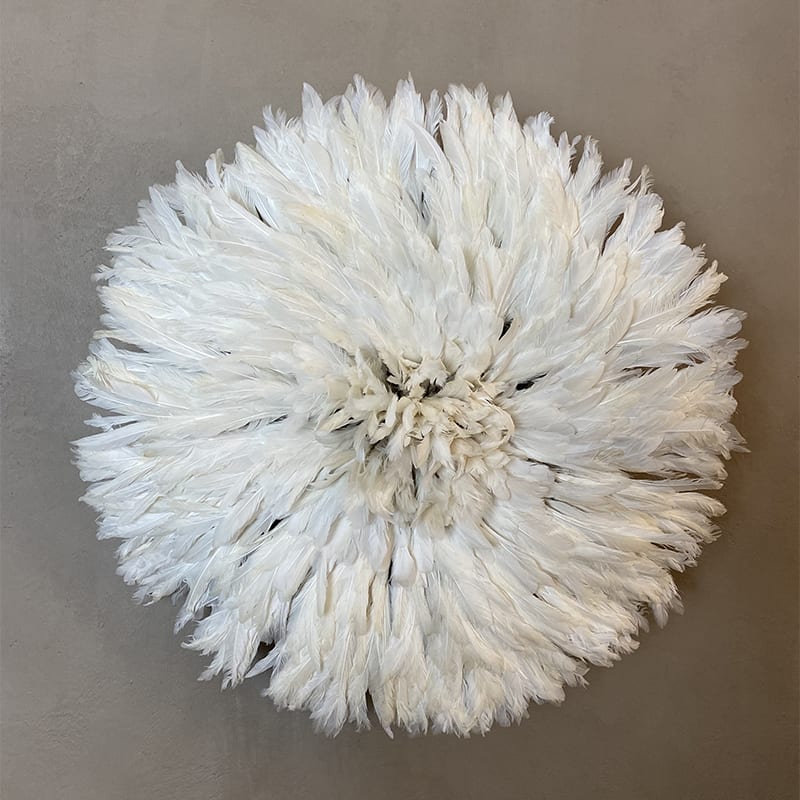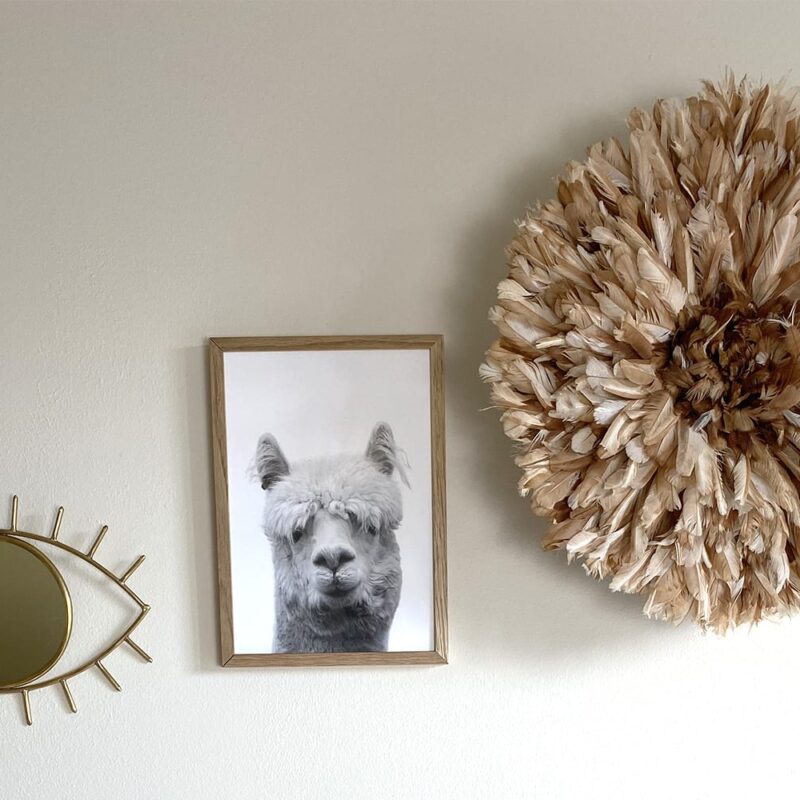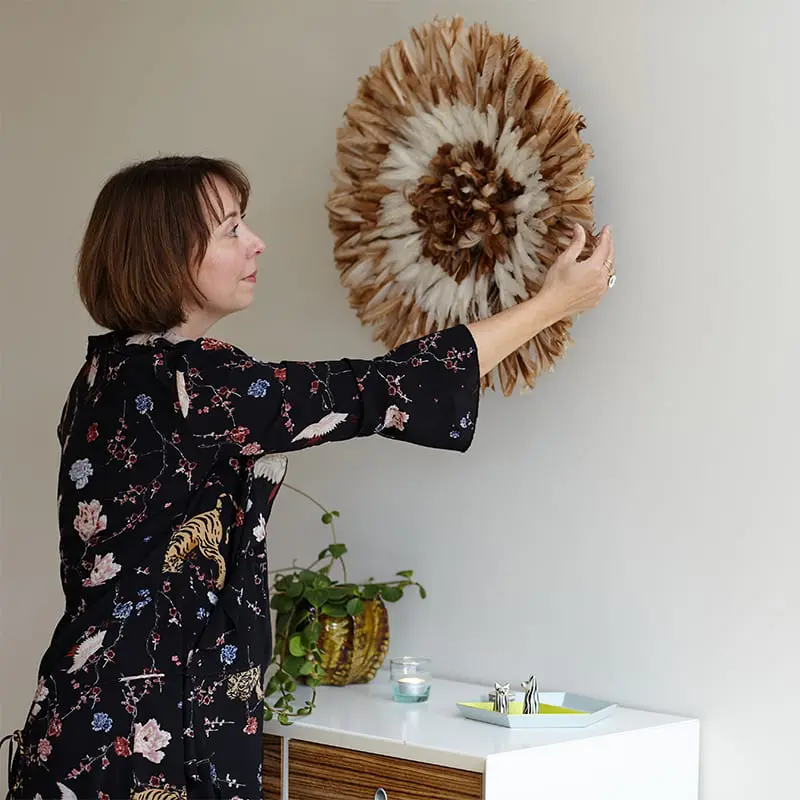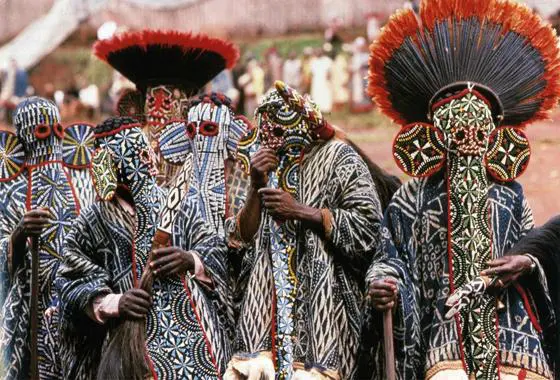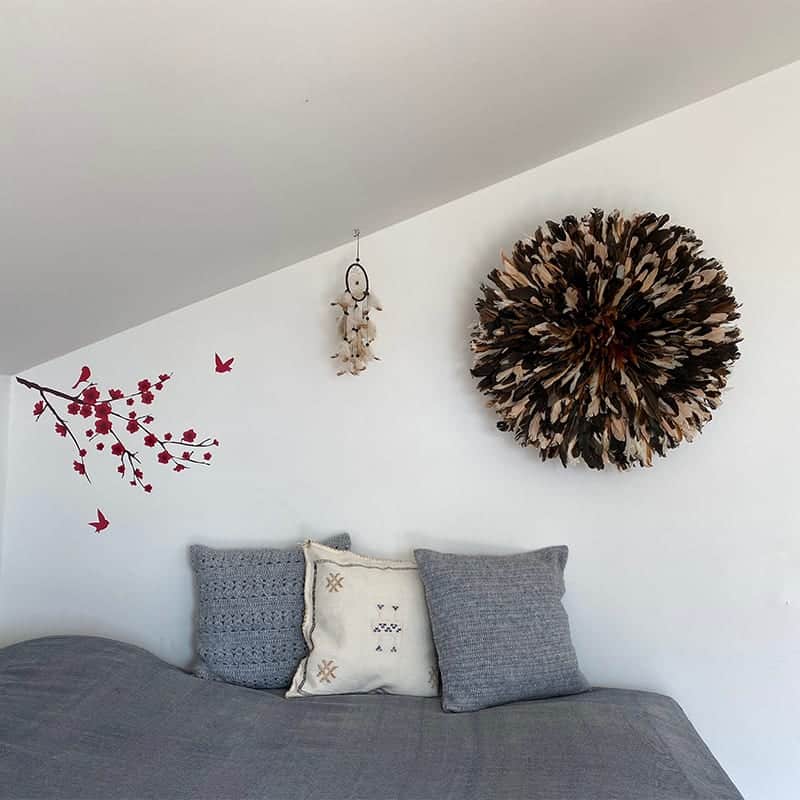A feathery breath for your decor
For me, creating a warm and personal home is largely about surrounding yourself with original and preferably slightly quirky things that surprise your guests when they walk in the door. Tibladin is therefore driven by a bubbling enthusiasm for finding the right and beautiful pieces, which must very much have an interesting story behind them. One of my favorite pieces is the juju hat.
The Juju hat is a beautiful, exotic, and in its own way slightly whimsical, feather decoration. In recent years, the hat has become popular as a personal and edgy touch in home decor, as well as in hotels, cafes & restaurants, where they hang as a feathery and colorful wall decoration. Personally, I love how the juju hat brings a warm and bright accent to any room. Its delicate yet classic design makes it ideal for both glam, minimalist and Scandinavian interiors. It decorates enormously on its own, but can also be cleverly combined with several hats or put together with posters, paintings or plants. However, despite the juju hat becoming an interior decoration supplement in the modern home, the hat has historically been a rare sight, reserved only for the few, for the Bamileke people in the western part of Cameroon in Africa.
The Bamileke people
The story behind the Bamileke people is quite special. Like many other African cultures, they have been through German colonization in the late 1900s, as well as violent and domineering French and British occupation in the early 20th century. But although the many years of struggle for independence have undeniably left their mark on the African people and their culture, many of the traditions of the Bamileke people are well intact and are passed on from generation to generation as a beautiful source of cultural identity and historical pride.
The combination of strength, grace, prosperity and festivity can be said to define royal ceremonies, including those of the Bamileke people. This combination of superlatives is expressed, among other things, in their "feather king's crown". As with the majority of Bamilke art, the juju hat is created specifically for use at royal parties or ceremonies, where it is worn by the royals and often together with an animal mask (elephant and leopard masks are reserved for the king and certain members of the tribe).
If you want a more surprising look on the wall, these JuJu hats will fit in perfectly. They can be bought at the shop Tibladin.dk and cost DKK 1200.
I think they are amazing and give the coolest look! But I'd rather not use them in the bedroom and let you buy them in the shop until I'm sure the corona crisis is over so I can get hold of some more.
Origin of the name
Today it is still uncertain where the name juju actually originates from. After the word popped up at the end of the 18th century, it quickly became a favorite expression among Europeans when they referred to West African religions and their healers, who were precisely called juju men. It is therefore very possible that it is this definition of the word that has passed on to the juju hat of the Bamileke people.
In addition, the two most well-oiled theories, such purely etymologically, are that juju either is a derivation of the word judju used by the Hausa people of northern Nigeria to denote an evil spirit, or derived from the French woo woo, which means toys. Over the years, the word has actually become more well-versed and is now used for very different things, for example as a name for cigarettes, as well as a Nigerian music genre.
A surprise at home
The Juju hat on my living room wall is undoubtedly one of the most distinctive accessories in my home. Every time we have guests, it is met with curious looks, lots of questions and lots of compliments. Everyone must go and touch the fine feathers. It's a surefire conversation starter! And with the hat's long history behind it, seeing it just becomes an even more interesting topic of conversation for me. Maybe it could be that for you too?

